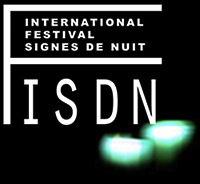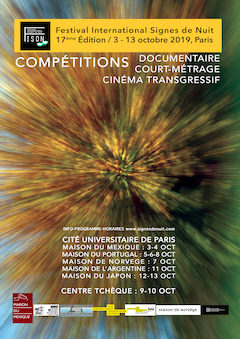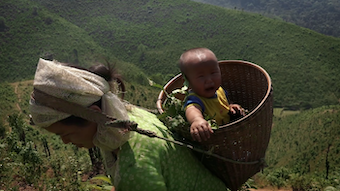 |
|
 |
Le 17e Festival International
Signes de Nuit
Paris
3 - 13 october, 2019
|
|
 |
|
|
|
|
 |
|
|
|
|
|
|
|
|
****** |
Focus Myanmar |
Saturday October 12, 2019 / noon
Maison du Japon
Cité internationale universitaire de Paris |
Cobalt Blue
|
|

EUROPE PREMIERE |
Aung Phyoe
Myanmar
2019 | 00:27:00
Yangon, 1998. The film takes place on one evening at the government
housing apartment by the railroad where a boy and his mother waiting
for the return of the father, a civil servant, to move out another
town at Upper Burma. The boy realises the unusual bond between him and
his mother regards the young helpful man-next-door.
|
| |
|
Between
|
|

EUROPE PREMIERE
|
Than Lwin Oo
Myanmar
2019 | 0:07:37
A back street. A boy and a girl. A life. |
| |
|
Opium Farmers
|
|

|
Su Su Hlaing
Myanmar
2019 | 00:20:56
Myanmar is the second largest opium producer in the world after
Afghanistan. Opium
cultivation is often the only viable cash crop for poor farmers living
in remote mountain
areas in Kachin and Shan States. Indigenous people in Kachin and Shan
also use opium
culturally, in religious rituals and as traditional medicine.
The Myanmar government is carrying out forced eradication to reduce
opium production
without sufficiently considering the farmers themselves. The Myanmar
Opium Farmers’
Forum (MOFF) was formed in 2013 to protect the rights of farmers and
help them have
meaningful involvement in drug policy design and alternative
livelihood development. This
film sensitively portrays the lives of two opium farming families in
Myanmar and sheds light
on their plight. |
| |
|
Lost Boy
|
|

|
Chit Moe Pio
Myanmar
2019 | 00:14:40
Thant Zin came to Yangon with his brother around three years ago. He
may have been twelve years old at the time, but he can’t really
remember. After finding him a job at a car wash, his brother returned
to their village, leaving Thant Zin behind. He has not been back
since. Deeply unhappy in his badly paid job, and fed up with sleeping
under a torn mosquito net in a dark and dingy room, Thant longs to go
home – but he doesn’t remember where his village is, or even what it
is called. A sensitively filmed short documentary about how one boy
tries to cope with loneliness and abandonment – a fate shared by many
children and young adults migrating from rural Myanmar to the city in
search of work and a better life. |
| |
|
Going Home
|
|

|
Shin Thandar
Myanmar
2019 | 00:18:05
A young filmmaker pays a visit to his native village in Myanmar’s
Kayah State where he reconnects with his hill-farming family and a way
of life marked by
privation but rich in tradition that has remained unchanged for
centuries. His presence rekindles old arguments between his siblings
and his mother, reminding him all too keenly of the sacrifices each of
them has made so that he might have an education.
|
| |
|
No Country for Women
|
|

FRENCH PREMIERE
|
Seng Mai
Myanmar
2019 | 00:10:00
Hundreds of thousands of Myanmar youths go off to the jade mines in
Hpakant, Kachin State, to escape from the clutches of poverty. These
youths eventually become addicted to drugs during their time there.
There are also women among these durg addcis. The community-based
anti-drug organization has opened up rehabilitation centers for these
youths addicted to drugs. Only a few of these centers accept women.
Women do not have the opportunity to join the rehabilitation centers.
This documentary presents the need for rehabilitation centers that
accommodate drug-addicted women in the Kachin State, Just like
their male counterparts. |
| |
|
October 3 - 13 , 2019
The FISDN present film series focused on different countries and regions. This section intends to discover and explore different spaces and cultures with the aim to understand the specific regional, political and social circumstances, do reconstruct the emotional and intellectual spécificities of a special region or country. In this critical work we belief it's essencial to prefer films which rufuse, in its form and expression, the retake of sterotype ways of reality restituition, as an act of resistance in the actual period of "globalisation", which inclins to impose one dominating model of culture and habitutes.
|
 |
|
|